How To Help Your Child Gain Ground In Reading Comprehension!
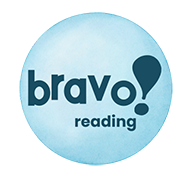
Comprehension skills are the cornerstone of effective reading and learning. Yet for children with dyslexia, these skills often present significant challenges. Dyslexia, a language-based learning difference, affects the ability to decode words accurately and fluently. This, in turn, hampers reading comprehension.

When children struggle to understand what they read, it impacts their overall academic performance and self-esteem. Bravo! Reading’s focus on enhancing comprehension skills for kids with dyslexia involves tailored strategies that address their unique needs, using multisensory approaches and structured support. By strengthening these skills, Bravo! Reading aims to help dyslexic learners not only keep up with their peers but also develop a genuine love for reading and learning.
The end goal of reading is to understand and comprehend what is read. This is called reading comprehension. Yet, many readers, especially those with learning disabilities or reading disorders like dyslexia, fail to achieve proper reading comprehension scores.
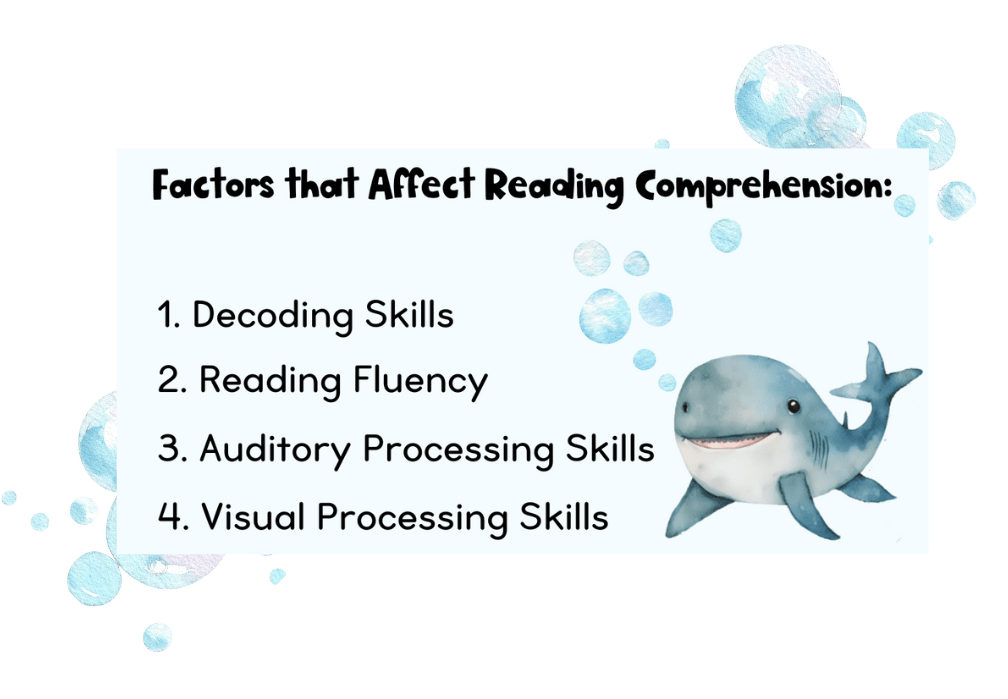
They bumble over words when reading out loud, panic when asked to read, avoid reading, and fail to understand what was read due to a lack of skills needed to make this an easy, enjoyable process. But don’t despair.
Reading comprehension strategies can be taught without pulling out your hair!
How Poor Decoding Skills Take A Toll On Reading Comprehension
Decoding skills are the backbone of reading, and these skills directly affect reading comprehension scores. After all, if you aren’t sounding out words correctly, how can you have the right meaning?

Decoding involves the process of sounding out letters in words in order to create meaning. When a reader decodes, print turns to speech through the rapid matching of letters or combinations of letters (graphemes) to their sounds (phonemes).
From there, the reader recognizes patterns that make syllables and words. This all happens in an automatic fashion, which is amazing if you think about it!
Decoding involves a certain amount of code translation, which can be a daunting task for the dyslexic reader. For these kids, frustration and sometimes panic take over when they try to decode, causing the act of decoding itself to become even more difficult.
These readers often resort to guessing at words or memorizing them as a last-ditch effort to sound out or decode.
Obviously, these methods are haphazard at best!
Stop The Decoding Struggle For Better Reading Comprehension!
Kids who struggle to decode usually have poor reading comprehension skills. This is because decoding is such a difficult process for them. While they are so busy focusing on the process of decoding, these readers lose the “meaning” connection.

This simply means that they are focusing too hard on the act of decoding because it is so laborious for them. As a result these kids lose sight of the meaning of what they just read. They answer questions wrong, and reading comprehension scores drop.
In addition, if decoding skills are poor, mistakes are made and words are read incorrectly. Misread words equate to incorrect meaning. Incorrect meaning equates to poor reading comprehension. It’s that simple.
When kids, especially those with dyslexia, have strong decoding skills, reading comprehension is naturally strong, unless there’s another reason standing in the way, such as an auditory processing disorder.
Kids with dyslexia and other reading disorders need to learn how to decode using different methods than those used for other children. Traditional reading programs cater to mainstream learners, and that works for most kids. But kids with dyslexia learn differently and they need a non-traditional way to master decoding skills.
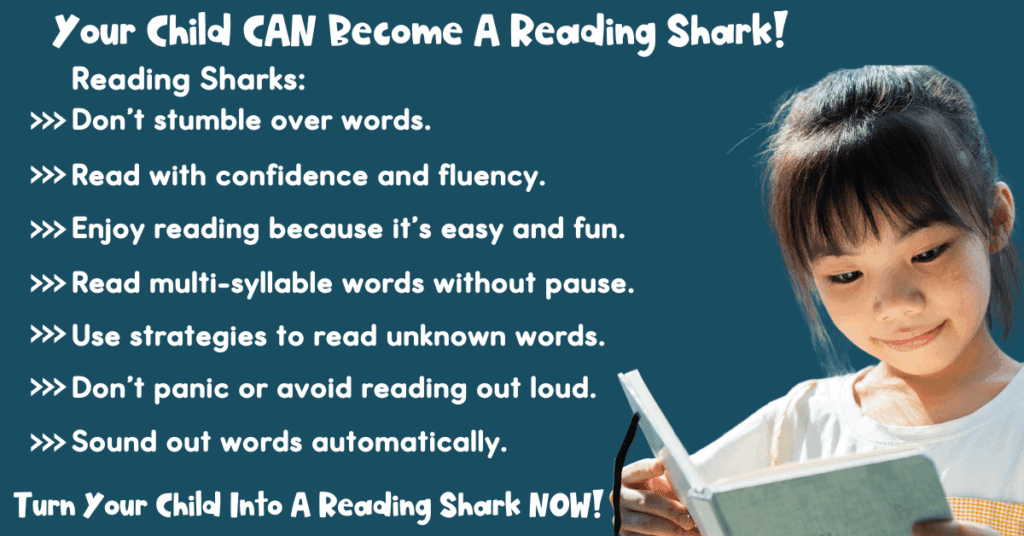
Why Your Child Should Never Use Flashcards For Reading Comprehension
Flashcards, phonics, and “drill and kill” worksheets don’t work for kids with dyslexia, and these methods certainly don’t raise reading comprehension scores. Most kids with dyslexia are tactile or hands-on learners.
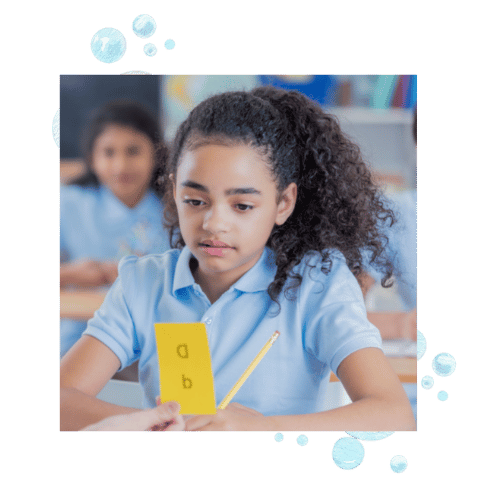
This means they learn best by doing, not by seeing or hearing!
Traditional decoding programs focus on teaching the skill of decoding through seeing and hearing. This just won’t work for dyslexic children!
These kids need to move to learn! Moving is their jam – how they connect the dots in their brains.
When kids with dyslexia move to decode, the act of decoding becomes easy, and reading comprehension scores rise.
How Innovative Activities Put An End To Guessing At Words
One of the biggest decoding mistakes dyslexic readers make is guessing at words, and obviously, guessing at words directly affects reading comprehension. After all, if the reader guesses incorrectly at a word, the entire meaning of the reading passage is changed! This will really foul up reading comprehension scores!
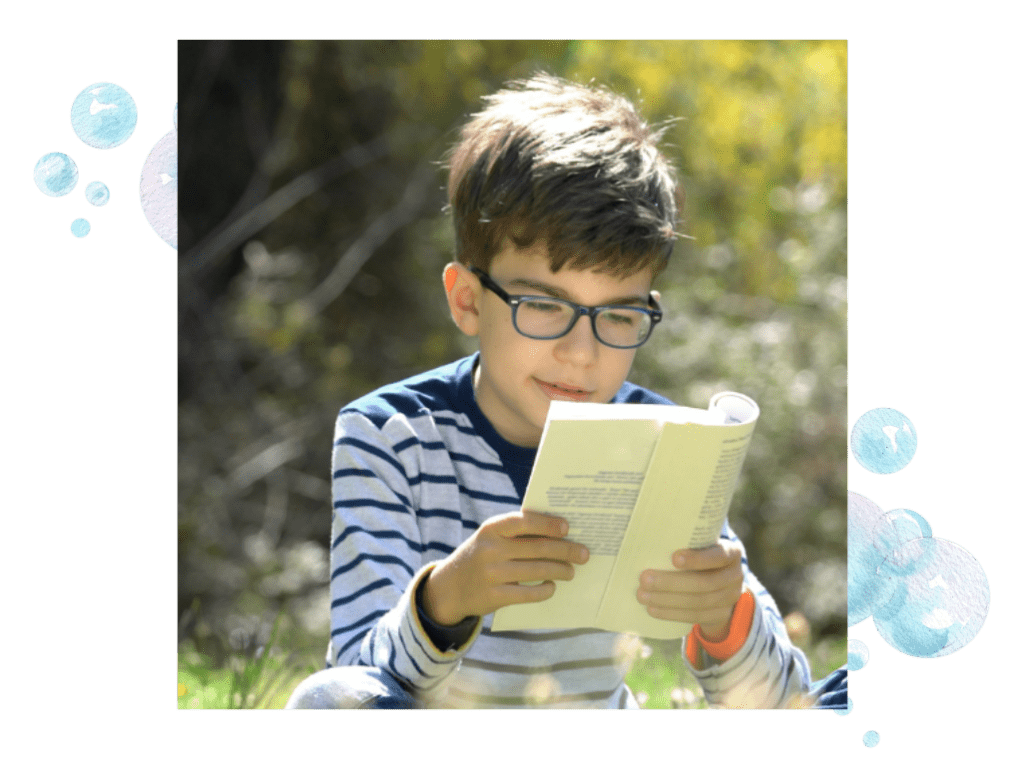
Because poor decoders are weak in strategies (or lack them completely), they resort to guessing at words. They might recognize the first letter or two of the word, and from there take a wild stab in the dark at what the word might be, not going step-by-step and sounding out the word.
Guessing at words is really just a bad habit! Once decoding skills are strong, the dyslexic reader no longer has the desire to guess at words. This is when reading comprehension scores rise, because words are read correctly!
Bravo! Reading understands how dyslexic readers learn, and because of this, all our materials cater to their unique learning needs. Color, pictures, gross motor movements, brain-based learning, predictability, and a multi-sensory approach to decoding make the difference for this learner!
When your child uses these methods, reading comprehension scores rise quickly.
In addition, Bravo! Reading has taken the guesswork out of decoding by creating packages that are strong with the hierarchy of reading. Each skill builds on the previous one.
This is what creates decoding mastery, which in turn, creates a strong reader with amazing reading comprehension skills! Even better, once a child has strong reading comprehension skills, then grades soar because meaning is learned and transferred with ease!
One Of The Worst Reading Habits Ever
Another bad habit that dyslexic readers resort to is memorizing words as a strategy for reading unfamiliar words they come across. Although it might seem like a good idea in theory, this method is simply too laborious for most readers. According to Merriam Webster, there are over one million words in the English language! As you can see, that’s a lot of words to memorize.

Kids who try to memorize words as a strategy to decode spend too much time searching their memory banks for the appropriate word. Just like guessing at words, they often choose the wrong word. This affects reading comprehension in a negative way, because wrong words equate to wrong means.
When meanings are read incorrectly, reading comprehension scores fall. Meanings must be interpreted correctly for proper reading comprehension to take place!
Even though kids with dyslexia struggle with language, they often have high vocabularies. This is why it’s so tempting for them to want to memorize words! But there are simply too many words to choose from.

This puts them at a disadvantage because it takes so long to search through memory banks for the right words. Once this happens, there’s a pause in learning, and this affects reading comprehension in a negative way.
For these learners, it makes way more sense to attempt memorization of words rather than go through the process of decoding words letter by letter or sound by sound.
This is because most kids with dyslexia are right-brain dominant, and the step-by-step necessities of decoding are a left-brain dominant activity.
Still, dyslexic readers stubbornly try to memorize words as a strategy to read new words they come across. Words are familiar to them, where the process of decoding is like speaking another language.
Simplify to Remember: Fewer Words, Better Memory
According to an article in English Live, we only use around 20,000 to 35,000 words in our daily vocabulary. Although way less than the total number of over a million words in our language, this is still a lot of words for a reader to deal with in an effort to avoid decoding an unfamiliar word!
Bravo! Reading knows the importance of decoding skills and how they affect reading comprehension. As a matter of fact, all Bravo! reading programs are decoding programs.
Bravo! also knows how bad reading habits can devastate a child’s ability to read, especially if that child has dyslexia. Reading comprehension doesn’t have to be a difficult process. Kids with dyslexia can learn to decode words so reading comprehension scores are high!
What’s The Big Deal About Fluency And Reading Comprehension?
If your child stammers or stutters while reading out loud, then most likely, decoding skills are at play. This ability to sound out words greatly affects reading comprehension and fluency abilities.

Reading fluency is the ability to read with accuracy, speed, and expression. Most dyslexic readers struggle in this area because they take too long to decode words.
Stumbling over words, pausing to think of sounds, guessing at words, and trying to memorize words instead of decoding them are common bad habits that dyslexic readers engage in.
To be a fluent reader, your child must be able to decode quickly and efficiently. In addition, your child must know what to do when coming across new or unfamiliar words.
When these fluency skills are weak, it takes too long to figure out the context of the passage, and reading comprehension scores drop.
Teachers typically record fluency times and compare them with previous times, hoping, of course, that progress is made. This process is usually recorded as “words per minute” and simply refers to how many words in one minute a student can read.
There are common “word per minute” guidelines schools and educators use to know where a student’s fluency scores lie. (see chart below) Some will vary, but usually the “words per minute” fall within similar ranges.
A Chart of Expected “Words Per Minute” Guidelines
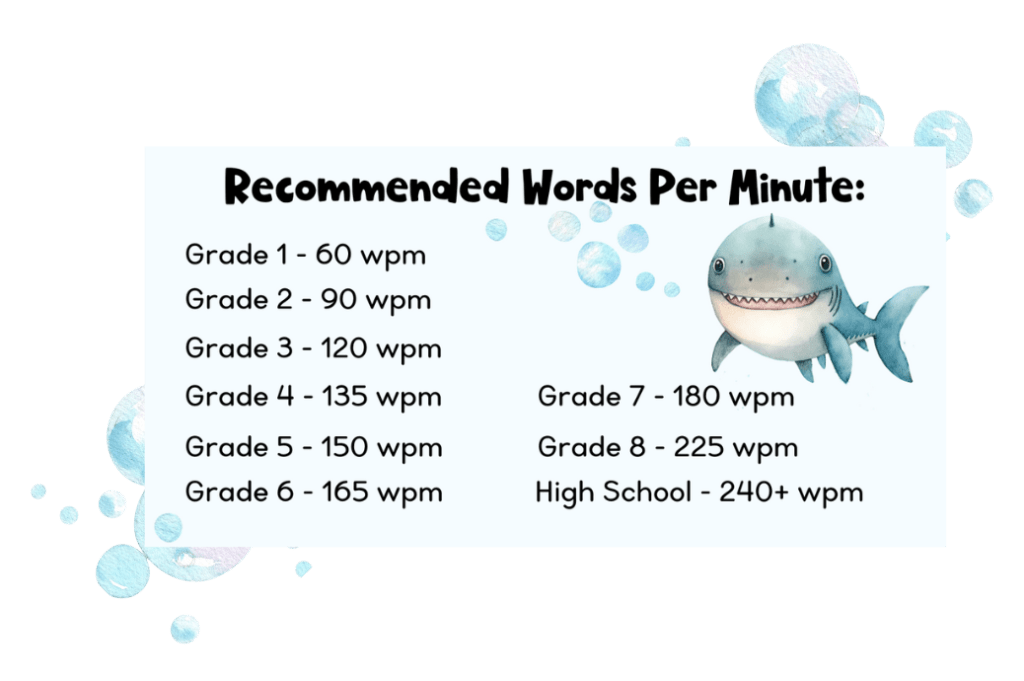
The One Thing You Should Never Do To Increase Fluency Scores
Too many reading programs and educators engage in the process of pushing readers to have higher reading fluency scores than those from a previous “read”. This, they feel, will lead to better reading comprehension scores. Although fluent readers usually score well in reading comprehension, teaching and pushing kids to read faster and faster can be dangerous.

With this method, kids are forced to read as fast as they can while the teacher records the student’s “words per minute”, taking away points for any mistakes made.
This process makes kids with dyslexia extremely nervous, and instead of focusing on the meaning of the text (reading comprehension), these kids focus on trying to read words quickly.
This only serves to frustrate kids who have poor decoding skills, because they have only a few strategies to sound out words they come across, so they keep falling further and further behind.
Their fluency scores get weaker and weaker while reading comprehension scores plummet.
Although it’s a fantastic idea to keep track of a student’s “words per minute”, the process of pushing kids to read faster and faster can be harmful to them, especially those with dyslexia. The goal is honorable – to increase reading fluency scores, which directly affects reading comprehension skills.
It’s Cruel To Force Kids With Dyslexia To Read Too Quickly!
The problem is that these kids get nervous when forced to read faster and faster. The pressure is unbelievable for them, and instead of increasing their fluency scores, they end up choking, fear and panic take over.

In addition, this very process encourages bad decoding habits. When readers panic, they end up guessing at words or memorizing them instead of instilling strong decoding skills.
If the same amount of time were spent on teaching the dyslexic reader strong decoding skills in ways the learner naturally understood, then there wouldn’t be a need to push for better fluency scores.
Reading comprehension scores would also soar, because reading fluency would be a natural process.
Fluency occurs naturally as a result of strong decoding skills!
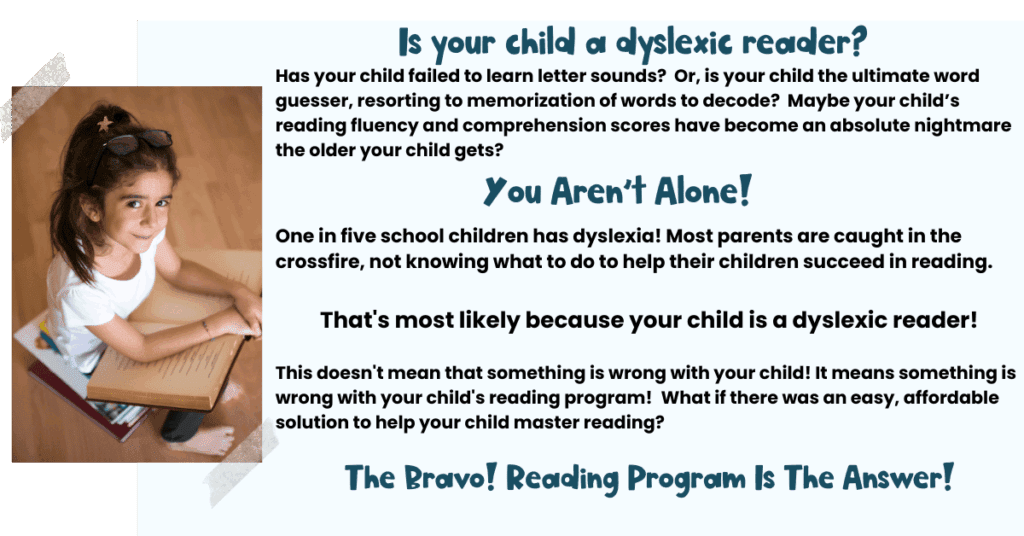


The Bravo! Bundle: Every Child Can Read!
If your child struggles with either reading comprehension or reading fluency, Bravo! Reading will help! When you order The Bravo! Bundle, you get the decoding tools necessary to make your child’s reading comprehension strong.

Usually, reading comprehension is weak because sounding out words is too laborious. Your child can’t focus on the meaning of what is read because the act of decoding or sounding out words is too difficult.
When your child can sound out words like a champ, it’s easy to focus on what’s being read! That’s when reading comprehension scores rise dramatically!
The Bravo! Bundle will not only give you an entire set of tools to help your child learn to read and comprehend better!
When you order The Bravo! Bundle, you’ll get all eleven levels of the Bravo! Reading Program, the Bravo! Beginner, and all five Bravo! Reading Expansion Packs.
The Bravo! Reading Expansion Packs you’ll receive when you order the Complete Bravo! Reading Program are the Bravo! Booster Pack, the Bravo! Super Booster Pack, the Bravo! Decoder Pack.


Wading Through A Sea Of Information: The Tide’s Out
Kids today are expected to know and retain large chunks of information. They spend huge amounts of time scrolling the internet and being exposed to massive amounts of information. From this information, they must find meaning.
They are required to make sense of a continual “too much” of everything!
All too often, instead of increasing reading fluency and reading comprehension skills, this glut of information causes the reader to “skim” for information, allowing sloppy decoding skills to emerge.

Instead of sounding out words in a logical manner, the reader picks through lines of text for something that holds interest.
Reading growth is halted.
Reading comprehension and fluency skills transfer to every other subject these days, even math. Today’s math, especially Common Core Math, forces the student to read word problems and then apply higher-level thinking skills to the problems. Computation isn’t the main focus.
Usually, the student must justify how the answer was achieved. Poor readers with low reading comprehension and fluency scores (words per minute), will naturally take a long time to reason out this type of math problem. They might struggle with the process of reading – not the process of mathematics. Even so, they are penalized in math…not in reading.
These kids might be excellent math students, but this format penalizes them because of poor reading comprehension and fluency skills. The students might not finish the work at all, fail tests because the readability level is too high, develop math anxiety, throw down any answer just to get done, or avoid doing the problem at all.
The information is inaccurate, because the measuring devices are intertwined instead of separated.
To Kids With Language Issues, It’s All Greek!
Science is another subject that penalizes students with poor reading comprehension and fluency skills. If the student is a hands-on learner, just watch as eyes light up over the thought of doing science!

But all too often, the student is made to read a long science passage and then answer comprehension questions about it. Rarely, do these tactile learners get the chance to perform real hands-on science experiments
Kids love doing hands-on science experiments, and that’s exactly what they should be doing in science class. But instead, they often end up reading those difficult science passages (often in thick textbooks) losing interest, and turning off to science!
When a student has poor reading comprehension and fluency abilities, then it takes a long time to read science passages. This, of course, directly affects the ability to understand the science passage that was just read. Kids lose interest, stumble over words, become anxious, and often just give up when forced to do science this way.
To make matters worse, science terminology is not reader-friendly. It is based on Greek or Latin words that don’t make sense to these kids. Kids with dyslexia, especially have a difficult time with this, which is so sad, because they naturally adore science and are usually good at it! The long, foreign words are frightening to the dyslexic student, causing anxiety, fear, and panic. Grades drop because reading comprehension skills can’t keep up. Self-esteem drops from failing.

Auditory Skills that Affect Reading Comprehension:

Auditory Memory: The Glue To Hold It All Together

Auditory Memory
One of the most important auditory processing skills that affects reading comprehension is auditory memory. Auditory memory is the ability to take in oral information, process it, store it in the brain, and recall that information when needed.

It only makes sense that auditory memory affects comprehension, as it’s a form of “memory”, and reading comprehension is, simply put, the ability to remember what was read.
When auditory memory skills are weak, the reader has to pause in an effort to recall what was just read. This, in turn, affects reading fluency, and a vicious cycle of reading failure occurs. Because of this, the reader must reread the passage over and over until it finally sticks
Obviously, this isn’t a smooth, effective process.
Usually, children with auditory memory issues are bright. Because of this, they get extremely frustrated and often resort to tantrums when they struggle with reading comprehension. Or, they might retreat, acting like they don’t care, when in fact, they do.

Sometimes these children are misdiagnosed with ADD (Attention Deficit Disorder) and placed on medications they don’t need. Of course, the symptoms might appear to be ADD.
The child stares off into space or does anything but tune into reading comprehension assignments. But usually, these kids are just exhausted.
They’ve tried over and over to recall what was read, but they don’t have enough “Velcro” to hold in auditory information.

Discriminating Between Sounds Is A Skill For Reading Comprehension!

Auditory Discrimination
Auditory discrimination is another auditory processing skill that can interfere with reading comprehension success if the reader has weaknesses in it. This crucial auditory processing skill involves the ability to recognize, compare, and distinguish subtle differences between units of sound.

Vowel sounds can be especially tricky for kids struggling with auditory discrimination issues.
For instance, if the reader hears the sound unit “at” as “ad”, it will change the perception of the word being decoded. This, in turn, affects fluency, as the reader must pause to think about if the sound unit is “ad” or “at”.
Finally, reading comprehension is affected, because the word read wasn’t the original word on the reading passage.

Filling in Gaps: It’s All In The Processing!

Auditory Closure
Auditory closure is another auditory processing skill that greatly affects reading comprehension strategies. This is the ability to complete distorted or missing parts of auditory signals then recognize and understand the sound unit in its entirety.

If you’ve ever talked on a cell phone with poor reception and had to strain to understand what was being said, you were using auditory closure skills. And you probably were frustrated about the entire the process!
Learning and reading are greatly affected by poor auditory closure abilities. The reader hears sound units or parts of words – whether out loud or in the mind – and might “lose” some of the sound, distort it, or change these sounds entirely in translation.
By not being able to fill in these auditory gaps, kids with poor auditory closure skills end up guessing at sounds or words. Or, they might not hear a sound or word at all! Sometimes, these kids might not hear the middle of words, the beginnings, or the endings.
How “Hearing” Information Incorrectly Makes It Hard To Learn
By “hearing” information incorrectly or missing out on it altogether, the reader is forced to guess at what was read. This directly changes the meaning of the text, resulting in poor grades and test scores even though the child is most likely quite bright.

Simply put, it’s hard for kids struggling with auditory memory to fill in gaps of words, to know what the missing parts of partially heard information is.
This auditory skill also directly affects meaning while reading. This is the ability to go from parts to whole. For example, while reading, if you come across the word “dinos…”, you should be able to fill in the gaps and determine the word is dinosaur.
Of course, the ending of the word isn’t the only place where our brains have to fill in these gaps. The gaps can be in the middle or beginning of words and sound units as well.

Visual Processing Skills That Affect Reading Comprehension

How Can Eye Muscles Affect Comprehension?

Eye Movement
In order to read, your eyes must glide across the page as you register symbols (letters). From there, you interpret these symbols, giving meaning to them.
But…there’s more!
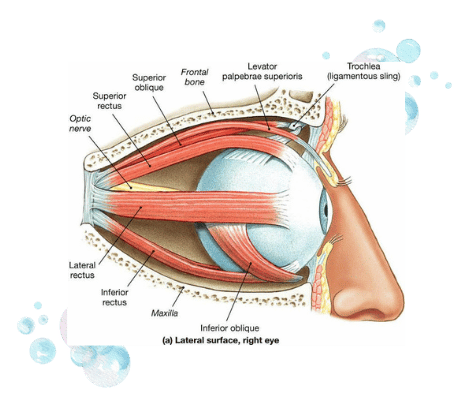
The eyes must also sweep across the page in a fluid motion as you read. They need to work together as a team, which can sometimes be difficult, because each eye has six muscles. With a total of twelve muscles involved, there’s a lot that can go wrong as far as teamwork goes!
Eye muscles are similar to the strings on a puppet, stretching from the eye socket and helping it move the eye up, down, side to side, and in a rotating manner.
If eye movement is weak or the muscles in the eyes are misaligned, then reading skills can be affected, especially comprehension. If the information taken in visually was distorted, missing, or not as originally intended, then meaning is changed. Questions about the passage the student read will most likely be incorrect due to this misinformation.
Eye muscles, like any muscles, can be exercised and strengthened. Once they are strong and aligned properly, these muscles have the ability to move in smooth, clean sweeps across a page. The easier it is for the eyes to glide across the page, the easier it is for other reading skills to fall into place because weak eye muscle movement isn’t holding back the reader and slowing down the whole process.
Poor Muscle Strength Makes it Hard to Read
It’s easy to make mistakes while reading if the eye muscles are jumping and jerking. When this happens, readers get fatigued as they read, because it’s too much work. They might rub their eyes or complain of a headache.

This tiredness and lack of acuity leads to reading mistakes. Words are read incorrectly. Letters might be transposed or come up missing in the reader’s view.
Of course, if letters and words are read wrong, meaning of the text is altered.
This has nothing to do with focusing, where an eye doctor would prescribe glasses for the lack of proper “vision”. It’s simply a muscle weakness issue.

How To Spot Differences In Print And Text!

Visual Discrimination
Visual discrimination is the ability to detect differences in and to classify objects, symbols, or shapes. The symbols can be categorized by color, position, form, pattern, texture, and size. This visual processing skill requires the ability to detect subtle differences between symbols. For reading, of course, the symbols are letters.
There are twenty-six letters, each a distinct and separate symbol, in the English language. Many of these letters resemble each other. For instance, “n” and “h” are very similar, and if a reader has poor visual discrimination abilities, then it’s easy to mistake one for the other.
If the student reads the word “neat” as “heat”, then obviously, meaning is changed, which directly affects reading comprehension scores.
Following is an example of how visual discrimination errors can change the meaning of text:
Example 1:

Example 2:


Filling in Visual Gaps: It’s Really Not That Hard!

Visual Closure
Another visual processing skill that affects reading comprehension is visual closure. Visual closure is the brain’s ability to fill in visual information to complete a “whole” when provided with missing or impartial pieces.

The brain is usually quite good at this skill, but sometimes, problems arise. If a reader is weak in this area, then the eyes and brain struggle to see letters or words as “wholes” if parts are missing. This leaves the reader no choice but to take wild guesses, directly affecting comprehension because guessing isn’t a sound strategy.
For most kids, the eyes will quickly see the “whole”, even if parts of it are missing or incomplete. But some readers end up processing each letter individually, which can change the meaning of the words because letters are read incorrectly.
Incorrect information, once again, translates to incorrect answers to comprehension questions.
Difficulty putting jigsaw puzzles together and struggling to tell the difference between lower case and capital letters are both examples of visual closure issues.
Having your child or student use Where’s Waldo books, or similar search and find activities, can give you an indication of visual closure issues or problems. Of course, these are always fun ways to help students strengthen this visual processing skill.

How To Raise Reading Comprehension Through Visual Memory!

Visual Memory
Visual memory is the ability to immediately recall what was seen, even if it’s not in sight any longer. As a child reads text, images are made in the mind of letters read, and these symbols not only have to be translated, but they must be remembered if reading comprehension is to take place in an effective way.

If a reader has weak visual memory skills, then it’s hard to remember what the letters and words just read were. These are the kids who have to keep reading and rereading passages to remember what they read.
Readers who move their lips while reading silently, or those who struggle to read silently, most likely have weak visual memory skills. The reader is depending on auditory cues to help sound out and retain meaning from letters and words.
Having weak visual memory skills is a frustrating problem for bright kids who want to read well. They know that’s something isn’t clicking as they read, yet they don’t know what to do about it. And of course, this lack of visual memory directly affects comprehension because visual memory is memory-based to start with.
How To Baffle Kids with Dyslexia…
If the reader struggles to recall even small bits of information, it makes it nearly impossible to answer detailed and higher-level reading comprehension questions such as inferences or main idea. The reading failure chain
If you’ve ever received a code on your phone, gone to plug it in, then couldn’t remember the six digits that you originally saw, then you had an episode of weak visual memory.
Kids can be taught to increase visual memory skills, which translates to better reading comprehension scores, higher grades, and a more confident student.





